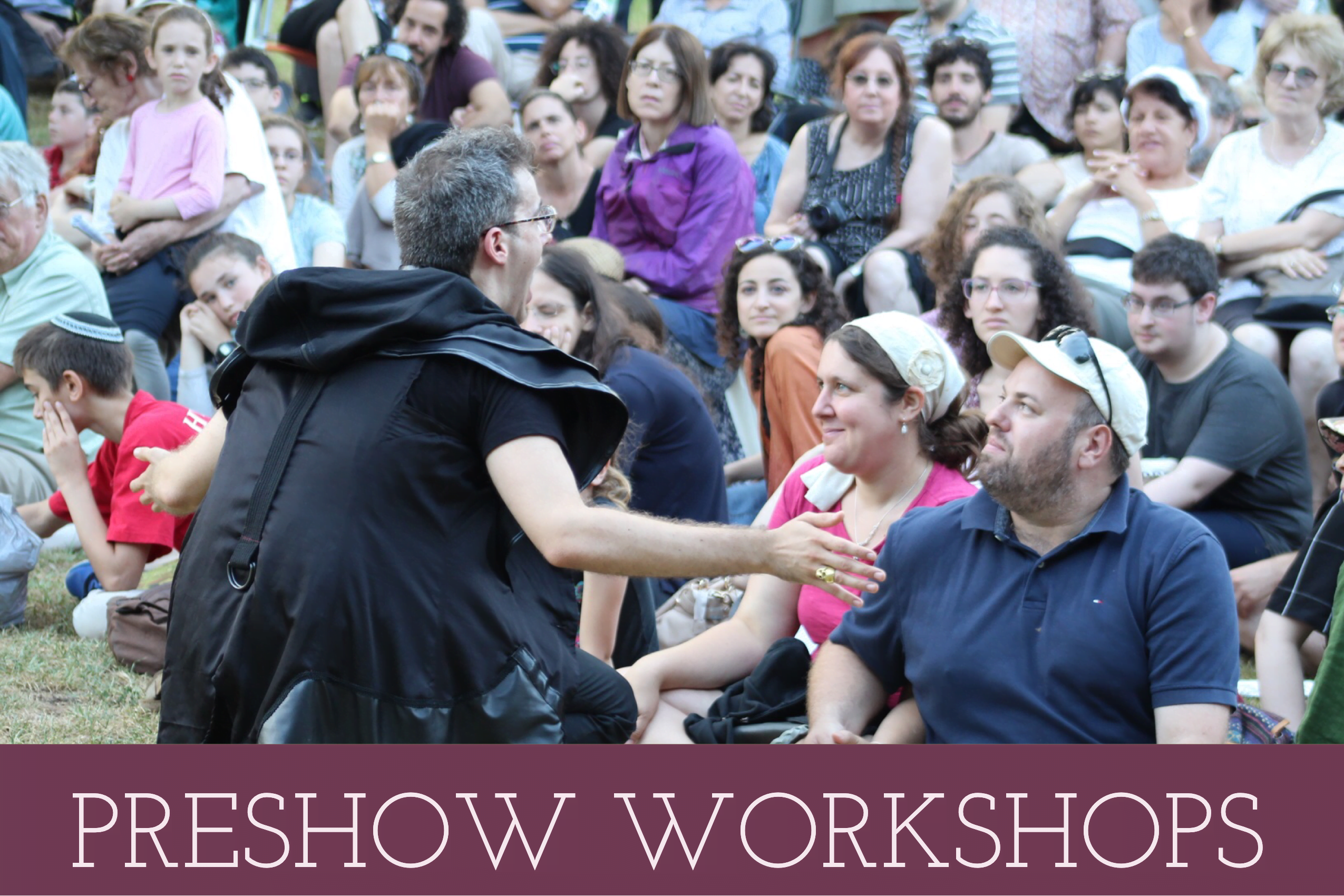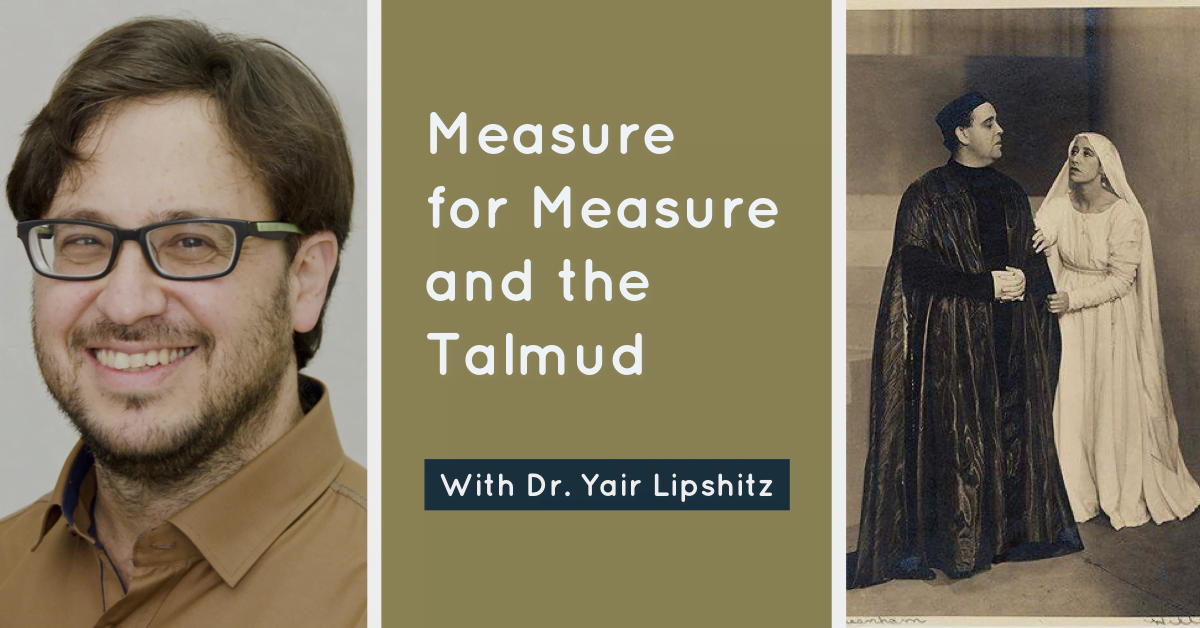A guest blog by Mordechai Blau, a local actor playing several parts Theater in the Rough’s upcoming production of Henry IV: in motion.
Sir John Falstaff is not a good person.
He’s a coward, a thief, and a drunkard. A selfish egotist, hiding behind a veneer of clever humor.
So why do we like him so much? More than the eponymous Henry IV, or his son, Prince Hal, it is Falsaff who’s the famous name, the play’s main attraction. Falstaff is funny (often very funny indeed), and we enjoy his foolishness as well, but what do we really think of him at the end of the day?
And you know what else is really funny? How humor can make things more palatable, smoothing out the nastiness as it goes down. When Falstaff and his pals rob a group of pilgrims, literally committing highway robbery, their actions are overshadowed by the jokes that sprinkle the escapade, and by the fact that Prince Hal (soon to be Henry V) returns the money to the King’s exchequer afterward.
“All’s well that ends well”, right?
But we’re not the only ones who like him – Prince Hal does too. We hear the emotion in his voice as he salutes his dead (or so he thinks) friend, “I could have better spared a better man.” This line captures something essential, some truth about what it is we like about Falstaff, and what his approach to life teaches us as human beings.

But what is the lesson he teaches?
As we dwell upon this conundrum, let’s consider the rehearsals for our upcoming production of Henry IV (opening next week, August 11!). I showed up, naïve and dewy eyed (my first play!), having read Henry IV, part 1. That, I had been told, was the play we were performing.
But the final act came and went, and the play continued; and I discovered that we were including three vital scenes from Henry IV, part 2, including the ending.
Changing the play completely.
Henry IV, part 1 treats Falstaff with forgiveness and much humor. As we saw, Hal mourns him when he thinks him dead, and when Falstaff rises again with his biggest con-trick yet, Hal seems to back his statement despite its patent falsehood. Falstaff gets what he wants, tacking on that he will mend his ways (not that we believe him). What fun! What good-natured joviality!
And then comes the next part of the story, Henry IV, part 2, a bleaker narrative, complete with dying kings, truant princes, scheming warfare and old age. Much of the play deals with Falstaff who, no longer with the prince, sinks ever lower in his behavior, accepting bribes and whatnot. And the play ends with a dramatic scene that involves Falstaff, one that makes it into our adaptation this summer.
Spoiler Alert!!!
The newly crowned King Henry V banishes Falstaff.
And you’re hit straight in the gut, just like Falstaff. You simply cannot believe it, as the king looks down at Falstaff and speaks so harshly. Words that cut through flesh like a frozen scalpel. Is he sad? Does he pity Falstaff, underneath it all? Or is that cold, cold voice all there is left…
That new ending makes the play be seen wholly in a different light. Time and again, as King Henry V speaks, Falstaff tries to connect with him, to remind the prince that they were once, that they still are friends. The prince says, “I care not.” And what had seemed like a big joke takes on a darker shade.
Earlier in the play, King Henry, then Prince Hal, had consorted with Falstaff and his group of bawdy criminals but did he truly like them, or merely liked being in control – included because he was heir to the throne? He is, after all, quite ready to renounce his ways and leave his former friends behind when the time comes. Was it all fake?
As for Falstaff, all he seems to want is Hal. Hal’s money and Hal’s attention, along with Hal’s love. But he senses Hal’s willingness to move on from him at some point in the future. So, when pretending to play Hal’s father, King Henry IV, during a simple tavern skit he and Hal put on, he begs, “Banish not him thy Harry’s company. Banish not him thy Harry’s company.”
The actor playing Henry (so excellent an actor – otherwise, he could not have evoked such passion in me) speaks as a judge, pronouncing the verdict, “I do. I will!”
At that moment, two scenes from two different Shakespeare plays came together for me. In Henry V (not part of our adaptation) the crowned Prince Hal, gives his famous speech about St. Crispin’s Day. As he tells us how he covets honor, I hear John Falstaff in an earlier scene in Henry IV, part 1 saying that “honor is a word…air…a mere scutcheon.” And I realize that I have come to hate the honor-grubbing prince, this duplicitous Henry V.

One of the most fascinating aspects of theater and making theater is how much is left to interpretation. True, the playwright has given us a script, but that’s just the beginning. Just think of Henry IV. Do we present Falsatff as a low-down drunk or a cheery Santa Claus? Is the prince kind or cold? Comedies can somber, tragedies delight; what we choose makes all the difference.
Shakespeare has so much in him – in each and every play he wrote. And it is that very genius that enables us this breadth of space, for the actors and directors to choose their bent. We will be going one way with our upcoming production, this August (from the 11th to the 24th) in Jerusalem. Others will choose differently. We invite you to join us, and grapple with these questions as you watch. And who knows? If we inspire you to make your own version, to see things in a different light than we did, I’d say we did a good job.

– Mordechai Blau
You can see Mordechai in the roles of Sir Walter Blunt, the Sheriff, and Edmund Mortimer in Henry IV: in motion.
August 11, 12, 15, 16, 18, 19, 22, 23, and 24, at 17:30 in Bloomfield Gardens, Jerusalem. Suggested donation: ₪40.
Preshow workshops for kids and adults on August 16 & 23. Special accessible performance on Friday, August 13.
For more information and to reserve your spot for the show, visit https://theaterintherough.co.il







